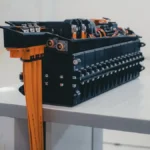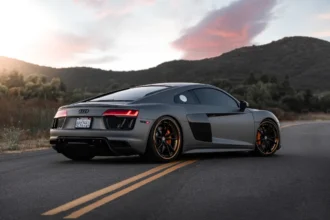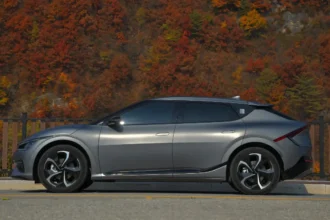Are you thinking about buying an electric car in Nepal? Here’s great news that will help you understand your options better. Nepal’s Finance Minister Bishnu Paudel just announced that electric vehicle costs will stay the same for the next fiscal year, according to TheKathmanduPost.
What This Decision Really Means for You
When the government says taxes will remain unchanged, this means something very important for your wallet. The current tax system makes electric vehicles much cheaper than regular fuel cars. By keeping these rates the same, the government is showing it wants more people to choose electric vehicles over petrol or diesel cars.
This policy choice demonstrates the government’s long-term commitment to environmental protection. Instead of changing rules every year, which would confuse buyers and sellers, Nepal is providing stable and predictable costs. This stability helps you plan your purchase and helps car dealers know what to expect.
The announcement came during Thursday’s budget presentation in Parliament for fiscal year 2025-26. In Nepal, the fiscal year runs differently than the calendar year, and this budget sets spending and tax policies for the entire country.
Understanding Nepal’s EV Tax System
The tax system works like a sliding scale based on your car’s motor power. Think of motor capacity like the engine size in regular cars – bigger motors mean more powerful vehicles but also higher taxes.
| Motor Power Range | What You Pay | What This Means |
|---|---|---|
| Up to 50 kW | 15% customs + 5% excise duty | Cheapest option – perfect for city driving and daily commuting needs |
| 51-100 kW | 20% customs + 15% excise duty | Mid-range vehicles with good performance for most family needs |
| 101-200 kW | 30% customs + 20% excise duty | Powerful cars suitable for highway driving and larger families |
| 201-300 kW | 60% customs + 35% excise duty | High-performance vehicles with luxury features and premium capabilities |
| Above 301 kW | 80% customs + 50% excise duty | Top-tier luxury cars with maximum power and highest tax burden |
New Support for Charging Infrastructure
The government announced special incentives for businesses that want to build charging stations. This is crucial for EV growth because people need convenient places to charge their cars.
- Ultra-low import costs – Companies importing charging equipment will pay only 1% customs duty, which is much lower than normal import taxes
- Complete tax exemption – Businesses won’t pay any other taxes or fees on this equipment, making it much cheaper to set up charging networks
- Five-year income tax holiday – Companies that manufacture or assemble charging stations won’t pay income tax for five years, encouraging local production and job creation
Why Nepal’s EV Growth Matters
Nepal’s electric vehicle growth has been absolutely remarkable. The numbers show something extraordinary happening in the country’s transportation transformation process. In 2019, electric vehicles made up only 5.5% of passenger vehicle sales, but by 2023-24, this jumped to an incredible 304%.
Last year alone, Nepal imported 11,701 electric cars, jeeps, and vans according to The Annapurna Express. This represents a 188.91% increase from the previous year’s 4,050 units, showing that more Nepali families are choosing electric transportation.
This growth makes perfect sense because Nepal generates most of its electricity from hydropower. Using electric vehicles means the country can use its own clean energy instead of importing expensive fossil fuels from other countries. This policy will help Nepal meet its climate commitments while building a more sustainable transportation future.











